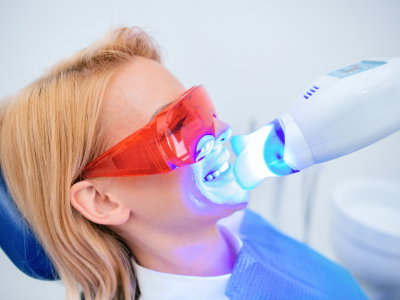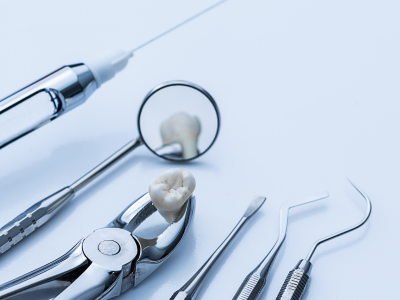Teeth Whitening: A bright, radiant smile is often associated with confidence and good oral hygiene. Over time, teeth can become stained or discoloured due to various factors such as diet, lifestyle choices, and natural ageing. As a result, many individuals seek methods to restore the whiteness of their teeth. With numerous teeth whitening options available, the choice between professional treatments and at-home methods can be overwhelming. Let’s delve into the pros, cons, and considerations of each to help you determine which might be the better choice for your needs.
What is Teeth Whitening
Teeth whitening is a cosmetic dental procedure aimed at brightening the natural colour of your teeth by removing stains and discoloration. Over time, factors like consuming certain foods and beverages (such as coffee, tea, red wine), using tobacco products, poor oral hygiene, and ageing can cause the teeth to lose their brightness. Teeth whitening procedures, whether conducted professionally or through at-home methods, involve the use of bleaching agents to lighten the shade of the teeth.
Professional teeth whitening is usually performed at a dental office by a qualified dentist or dental hygienist. It often involves using higher-concentration bleaching agents and specialized equipment, ensuring more immediate and noticeable results. The dentist may apply a protective barrier to the gums and then directly apply a high-concentration bleaching gel to the teeth. This gel is often activated by a specialized light or laser, accelerating the whitening process.
On the other hand, at-home teeth whitening options encompass a variety of products available over the counter, such as whitening strips, gels, toothpaste, and tray-based systems. These products contain lower concentrations of whitening agents compared to professional treatments. At-home methods generally take longer to show noticeable results and may require consistent application over several weeks to achieve the desired level of whiteness.

Professional Teeth Whitening
Procedure and Process:
Professional teeth whitening is typically performed by a dentist or a dental hygienist in a dental office. It involves the use of stronger bleaching agents compared to over-the-counter products. The process often starts with a thorough dental examination to ensure the patient’s suitability for the treatment. The gums are protected, and a high-concentration bleaching gel is applied directly to the teeth, usually activated by a specialised light or laser.
Pros:
Effective and Quick Results: Professional treatments often deliver more immediate and noticeable results compared to at-home methods. The use of higher-concentration bleaching agents in a controlled environment can lead to significant whitening in a single session or a few visits.
Customised Treatment: Dentists can tailor the treatment to the patient’s specific needs and address any concerns or sensitivities. Custom trays or specialised techniques can be employed for optimal results while minimising potential side effects.
Professional Supervision: Undergoing teeth whitening at a dental office ensures professional oversight, reducing the risk of improper use or potential complications.
Cons:
Cost: Professional teeth whitening treatments tend to be more expensive than at-home alternatives due to the expertise, materials, and equipment involved. The cost may vary depending on the dentist’s location, expertise, and the complexity of the procedure.
Sensitivity and Discomfort: Some individuals may experience increased tooth sensitivity or gum irritation following professional treatments. However, dentists can often manage these side effects effectively.
At-Home Teeth Whitening
Options Available:
At-home teeth whitening options range from over-the-counter whitening strips, gels, toothpaste, and tray-based systems to natural remedies like activated charcoal or baking soda.
Pros:
Convenience and Accessibility: At-home teeth whitening products are widely available and convenient to use. They offer flexibility, allowing individuals to whiten their teeth at their own pace and schedule.
Affordability: Compared to professional treatments, at-home whitening products are generally more affordable. There’s a range of options available to suit various budgets.
Incremental Whitening: At-home methods may allow for gradual whitening, which could be preferable for those seeking a more subtle change or managing tooth sensitivity.
Cons:
Effectiveness: Over-the-counter products often contain lower concentrations of whitening agents, which might result in slower or less dramatic results compared to professional treatments.
Potential Risks: Improper use of at-home whitening products can lead to uneven whitening, gum irritation, or increased tooth sensitivity. Some natural remedies may lack scientific backing and could potentially damage tooth enamel if used incorrectly.

Which Option Is Right for You?
Choosing between professional and at-home teeth whitening depends on various factors:
Whitening Goals: If you desire immediate and significant whitening results, professional treatment might be more suitable. For more gradual improvement or maintenance, at-home methods could suffice.
Budget: Consider your budgetary constraints. Professional treatments might offer faster and more noticeable results but at a higher cost compared to at-home products.
Dental Health and Sensitivity: Individuals with dental concerns or heightened tooth sensitivity may benefit from professional supervision to minimize potential side effects.
Time and Convenience: At-home whitening methods offer flexibility but may require consistent application over a longer period for noticeable results. Professional treatments typically provide faster outcomes.
Conclusion
Both professional and at-home teeth whitening options have their merits and drawbacks. The choice ultimately depends on your preferences, budget, and dental health considerations. Consulting with a dentist can help determine the most suitable approach for achieving your desired level of teeth whitening while ensuring safety and effectiveness.
Remember, maintaining good oral hygiene practices, such as regular brushing and flossing, and professional dental cleanings, is essential for preserving a bright and healthy smile.


